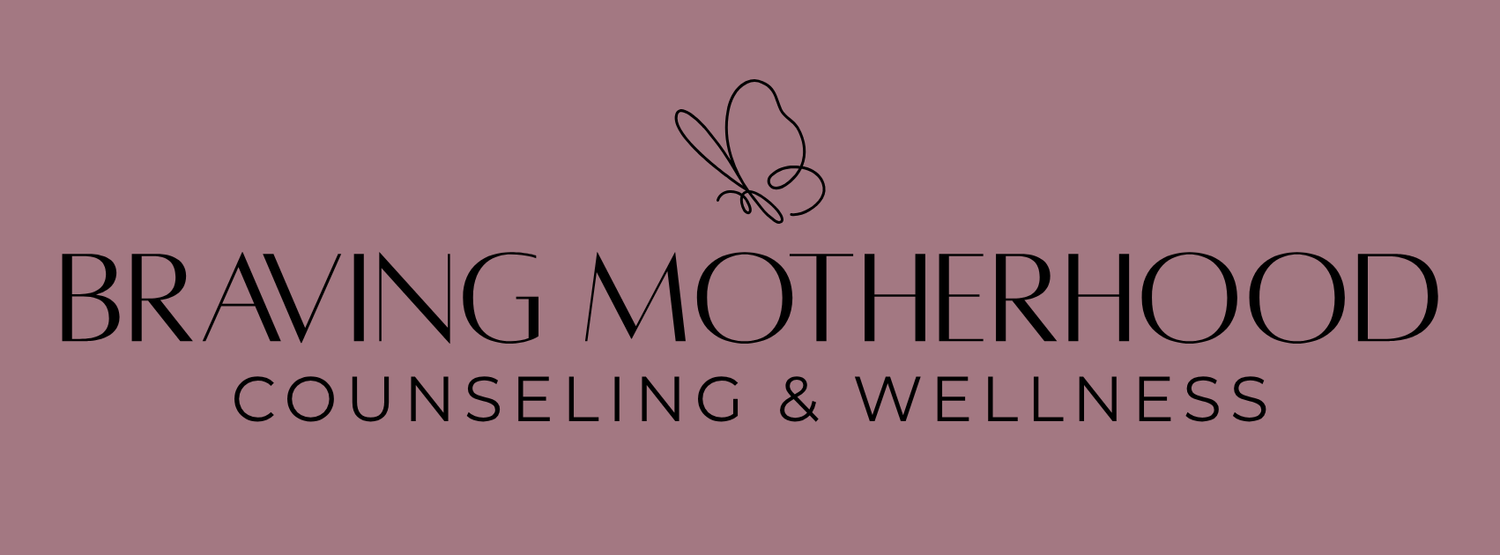Postpartum Depression: What It Really Looks Like (And How to Get Support)
Hey mama, let’s be honest — being a new mom is overwhelming. Everyone talks about the “baby blues,” but what you’re feeling might be more than a few tears here and there. You might feel… exhausted, disconnected, anxious, or even irritated in ways that surprise you. That’s where postpartum depression (PPD) comes in. It’s common, real, and treatable — and it doesn’t mean you’re failing.
In fact, about 1 in 7 mothers experience PPD in the first year after giving birth (CDC, 2022). Understanding what it looks like — both the obvious and the hidden signs — can make a huge difference in how you feel and how quickly you get support.
Classic Signs You Might Have Heard Of
Maybe your doctor mentioned some of these at your checkup:
Feeling persistently sad, hopeless, or tearful
Trouble bonding with your baby
Loss of interest or joy in things you used to enjoy
Fatigue or low energy
Guilt or feeling like you’re “not enough”
If any of these sound familiar, that’s valid. But PPD doesn’t always show up this way.
Signs You Might Not Know About
Many moms experience PPD in ways that aren’t talked about as much. You might notice:
Feeling numb or disconnected, like you’re watching life happen around you instead of living it
Irritability or anger — snapping at small things or feeling frustrated more than usual
Racing thoughts or constant worry, especially about your baby
Being overstimulated, “touched out,” or exhausted by simple daily tasks
Trouble focusing, remembering, or making decisions
Some moms think, “I’m not depressed — I’m just not me.” That feeling itself can be a sign of PPD (O’Hara & McCabe, 2013).
Why This Happens
PPD isn’t a reflection of your love for your baby or your parenting skills. It happens because your body and mind are going through enormous changes, many of which are outside your control:
Hormones: After birth, estrogen and progesterone drop quickly, which can affect mood. These shifts are natural and unavoidable.
Sleep deprivation: Caring for a newborn often means very little restorative rest, and almost no amount of “planning” can fully prevent it.
Life changes: Relationships, work, finances, and daily responsibilities all shift rapidly after birth — factors you can’t always control.
Mental health history: A past history of depression or anxiety increases risk, even if you’ve never experienced PPD before.
It’s usually a combination of these biological, psychological, and social factors (Stewart & Vigod, 2016). None of them mean you did anything wrong — PPD is not your fault.
What Recovery Looks Like
Here’s a truth every mom needs to hear: healing doesn’t mean going back to exactly who you were before having your baby. Motherhood changes you — emotionally, mentally, and physically. Healing means learning to breathe again in the life you have now. You can feel steadier, more compassionate toward yourself, and less weighed down by the constant pressure to “do it all” (O’Hara & McCabe, 2013).
Evidence-Based Ways to Get Support
You don’t have to figure this out alone. Here’s what research-backed support looks like in real life:
Therapy – Cognitive Behavioral Therapy (CBT) and Interpersonal Therapy (IPT) help many moms process thoughts and feelings, manage anxiety, and improve mood (Sockol, 2015).
Medication – Antidepressants can be safe for postpartum moms, including those breastfeeding, when prescribed by a doctor (ACOG, 2023).
Social support – Talking to a partner, friend, or support group can relieve pressure and isolation. Even sharing your story with one trusted person helps.
Small self-care steps – A shower, a 10-minute walk, or a nap while your baby sleeps may seem tiny, but these moments can make a real difference.
When to Reach Out
You don’t have to wait until things feel unbearable to get help. Early support can make recovery smoother and prevent symptoms from worsening. Consider reaching out if you notice:
Persistent sadness, irritability, or anxiety lasting more than two weeks
Difficulty caring for yourself or your baby
Feeling emotionally disconnected or numb
Thoughts of harming yourself or your baby
Even if you’re managing day-to-day but something feels “off” inside — like constant worry, guilt, or frustration — reaching out early is a sign of strength, not failure.
If you ever feel unsafe with your thoughts, call or text 988 immediately.
Support from Braving Motherhood Counseling & Wellness
At Braving Motherhood, we provide therapy that’s evidence-based and delivered with compassion. We help moms navigate the emotional ups and downs, identity shifts, and everyday challenges of early motherhood. You don’t have to carry it alone — seeking support is brave and important.
Helpful Resources
Postpartum Support International – https://www.postpartum.net
CDC: Postpartum Depression – https://www.cdc.gov/reproductivehealth/depression/index.htm
988 Suicide & Crisis Lifeline – Dial or text 988 for immediate help
American College of Obstetricians and Gynecologists (ACOG): Screening for Perinatal Depression – https://www.acog.org/womens-health/faqs/depression-and-other-perinatal-mood-disorders
References
American College of Obstetricians and Gynecologists. (2023). Screening for Perinatal Depression.
Centers for Disease Control and Prevention. (2022). Postpartum Depression.
O’Hara, M. W., & McCabe, J. E. (2013). Postpartum depression: Current status and future directions. Annual Review of Clinical Psychology, 9, 379–407. https://doi.org/10.1146/annurev-clinpsy-050212-185612
Sockol, L. E. (2015). A systematic review of the efficacy of cognitive behavioral therapy for treating and preventing perinatal depression. Journal of Affective Disorders, 177, 7–21. https://doi.org/10.1016/j.jad.2015.01.052
Stewart, D. E., & Vigod, S. N. (2016). Postpartum depression: Pathophysiology, treatment, and emerging therapeutics. Annual Review of Medicine, 67, 231–245. https://doi.org/10.1146/annurev-med-050214-013539

